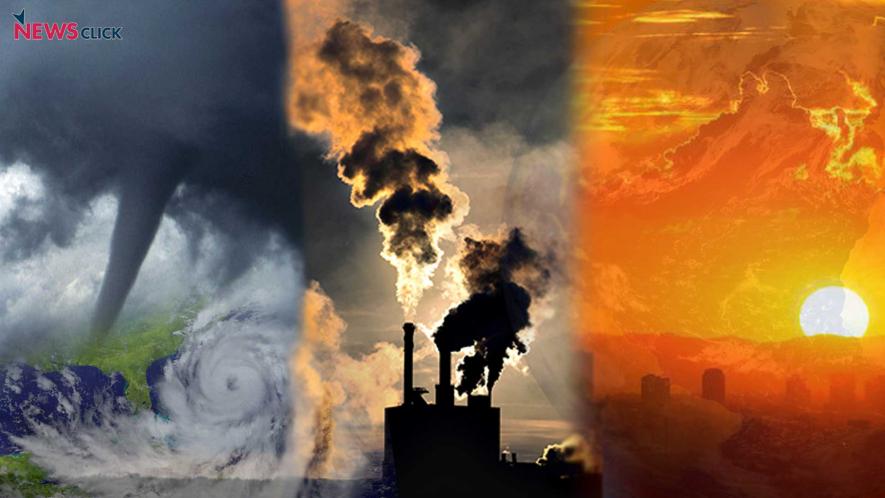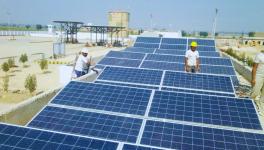Climate Change Hits North Bengal With Heat Waves, Leaves Scientists Perturbed

Kolkata: Effects of climate change are being felt in the North Bengal region, which is seeing extreme heat waves in the Monsoon months.
Two people, including a school student, have already lost their lives in the hot season due to exhaustion. The second victim, a boy, drowned after he jumped into the Dyke barrage to escape the heat in North Dinajpur’s Chopra police station area.
In Siliguri, the temperature remained about 5 to 6 degrees above the normal temperature, coupled with humidity. In Coochbihar, the temperature is nearing 40 degrees Celcius.
In Darjeeling and Kurseong, heat wave situations continued as well, which is uncommon in the monsoon months.
Gopinath Raha, Director of Sikkim Meteorological office, said that last Friday was the warmest day of the year in North Bengal. The temperature of Coochbihar, which was at 39 degrees Celsius, crossed the earlier highest temperature recorded in July, 1972.
It can be recalled that only weeks earlier, North Bengal recorded a flood that damaged many vital infrastructures of the region.
Scientists attribute this sudden change of weather as an effect of climate change in the sub-Himalayan region.
In Maldaha district, due to the dearth of rain, the rivers and canals are fully dry, which has led to the loss of livelihood of over 10,000 fish culturalists.
In Alipurduar, due to the heat waves, the agricultural and tea sectors are facing an untoward crisis, according to agronomy experts.
The Aman cultivation of paddy plants In North and south Dinajpur districts has received a big jolt and turned yellow in the fields in want of water. Even the jute soaking procedure, which needs water, has been hampered. Where jute has been harvested, the soaking process has been hampered to a great extent.
The recent change in the weather has been attributed to an effect of climate change in the sub-Himalayan region.
Ulka Kelkar, Director of Climate, World Resources Institute India, told Newsclick, “We are beginning to see the predicted signs of climate change with the occurrence of extreme heat and intense rainfall events in North Bengal. Areas closer to the Himalayas have been warming faster than the rest of the country. This means that even the normally cool parts of the country will need health action plans to warn people about coping with heat stress and dehydration. Also, infrastructure projects and urban development in fragile landscapes should take into account the additional risks due to climate change of extreme rainfall, flooding and landslides."
Dr Anjal Prakash, Research Director and adjunct professor at the Bharti Institute of Public Policy under the Indian School of Business, pointed out that the weather conditions in North Bengal, where it was supposed to be raining, a dry spell and heat waves occurred. Prakash, who is also the author of the 6th assessment report of the IPCC Working Group, told Newsclick that the IPCC report also suggested that there will be co-incidence of heat waves and excessive rainfall -- this is known as the unpredictability of weather or unreliability of weather due to global warming.
“This is in line with the models predicted for South Asia. The task is first to inform people about climate change, and the second is to protect them from the issues of climate change. A couple of weeks ago, we saw the huge floods ravaging Bangladesh in the Sylhet area, and now the heat wave in North Bengal which is unprecedented in the monsoon season. Its impact on the life and livelihood of people is huge. Another thing is its impact on agriculture; this is the time when rice sowing and transplanting are done. It is a critical time for people whose life is 70 to 80% dependent on agriculture. I would request the West Bengal government to take note of what is happening and compensate people. This is because the stress that they are facing is not due to their role but due to a larger cause," he said.
Get the latest reports & analysis with people's perspective on Protests, movements & deep analytical videos, discussions of the current affairs in your Telegram app. Subscribe to NewsClick's Telegram channel & get Real-Time updates on stories, as they get published on our website.
























